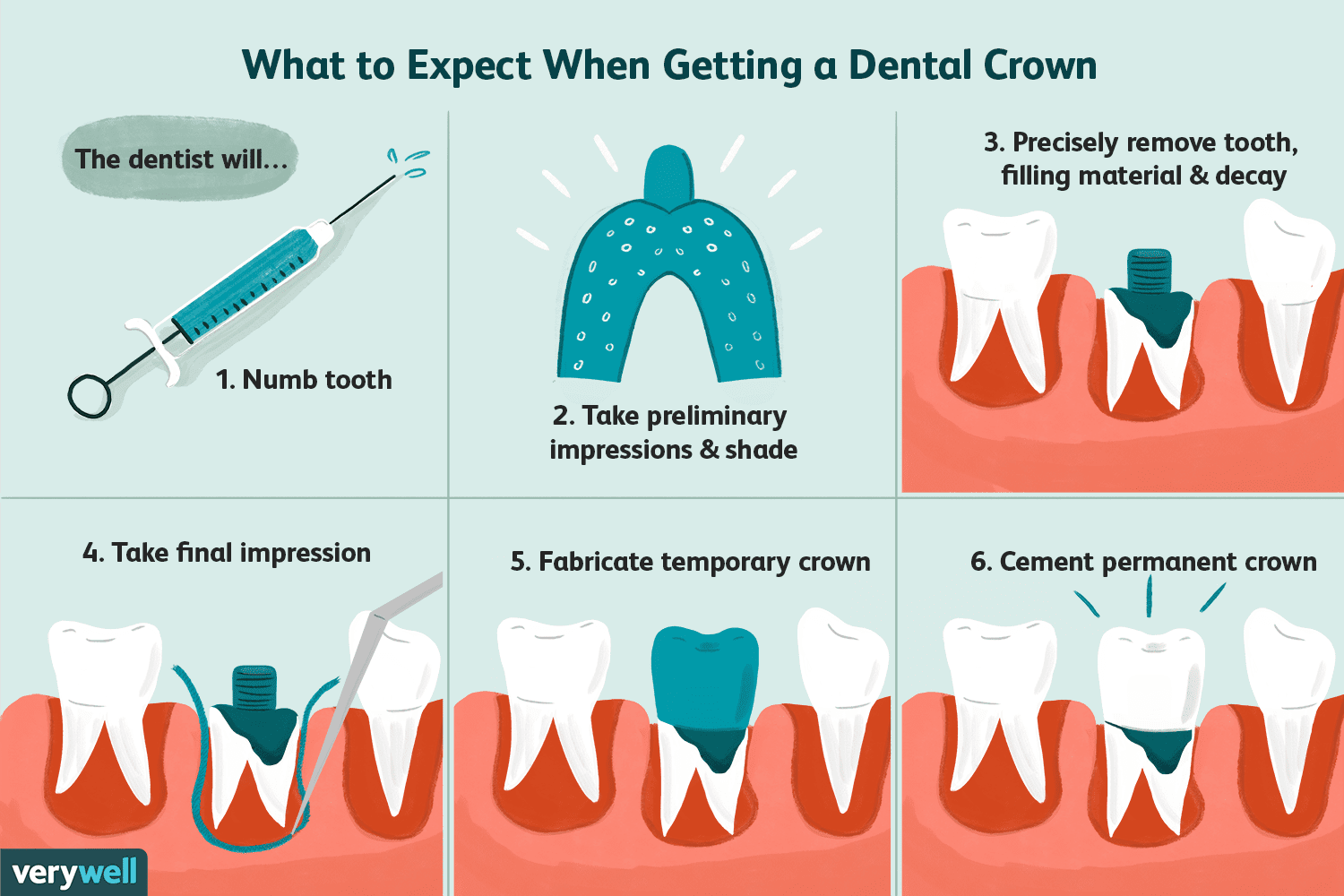Having A Crown Fitted

The process of having a crown fitted is a common dental procedure that can be necessary for a variety of reasons, including tooth decay, cracked teeth, or cosmetic concerns. A crown is a cap that covers the entire visible portion of a tooth, restoring its shape, size, and strength. In this article, we will explore the process of having a crown fitted, including the preparation, procedure, and aftercare.
Preparation for a Crown Fitting
Before a crown can be fitted, the tooth must be prepared. This typically involves removing any decay or damaged areas of the tooth, and shaping the tooth to accommodate the crown. The dentist will use a local anesthetic to numb the area, and then use a drill to remove any decay or damaged areas. The tooth is then shaped to fit the crown, and an impression is taken of the tooth and surrounding teeth. This impression is used to create a model of the tooth, which is then used to create the crown.
The Crown Fitting Procedure
The crown fitting procedure typically takes two visits to the dentist. During the first visit, the tooth is prepared and an impression is taken. The impression is then sent to a dental laboratory, where the crown is created. This can take several days or weeks, depending on the type of crown being created. During the second visit, the crown is fitted to the tooth. The dentist will check the fit of the crown, and make any necessary adjustments. Once the crown is fitted, it is cemented into place using a special adhesive.
Types of Crowns
There are several types of crowns available, each with its own advantages and disadvantages. The most common types of crowns include:
- Porcelain crowns: These crowns are made of ceramic material and are often used for front teeth. They are popular because they are aesthetically pleasing and can be matched to the color of the surrounding teeth.
- Gold crowns: These crowns are made of gold alloy and are often used for back teeth. They are durable and can withstand the forces of chewing.
- Composite crowns: These crowns are made of a combination of materials, including ceramic and metal. They are often used for teeth that are visible when speaking or smiling.
- Zirconia crowns: These crowns are made of zirconium oxide and are often used for teeth that are subject to heavy wear and tear. They are durable and can withstand the forces of chewing.
Aftercare for a Crown Fitting
After a crown is fitted, it is essential to take good care of the tooth to ensure the crown lasts for many years. This includes:
- Brushing and flossing: Regular brushing and flossing can help to remove plaque and bacteria from the tooth and surrounding area.
- Avoiding certain foods: Avoiding certain foods, such as hard or sticky foods, can help to prevent damage to the crown.
- Attending regular check-ups: Attending regular check-ups with the dentist can help to identify any problems with the crown early on.
FAQs
How long does a crown last?
+The lifespan of a crown depends on various factors, including the type of crown, the oral hygiene habits of the patient, and the amount of wear and tear the crown is subject to. On average, a crown can last for 10-20 years.
Does a crown fitting hurt?
+The crown fitting procedure is typically painless, as the dentist will use a local anesthetic to numb the area. However, some patients may experience sensitivity or discomfort after the procedure, which can be managed with over-the-counter pain medication.
How much does a crown cost?
+The cost of a crown depends on various factors, including the type of crown, the location of the tooth, and the dentist's fees. On average, a crown can cost anywhere from $500 to $2,000.
Conclusion
Having a crown fitted is a common dental procedure that can be necessary for a variety of reasons. While the process can seem intimidating, it is typically painless and can be completed in two visits to the dentist. By taking good care of the tooth and attending regular check-ups, a crown can last for many years. It’s essential to discuss any concerns or questions with a dentist to determine the best course of treatment for your specific needs.

